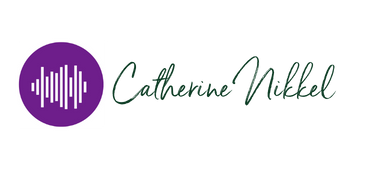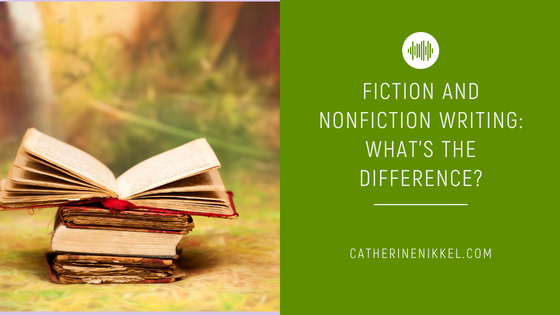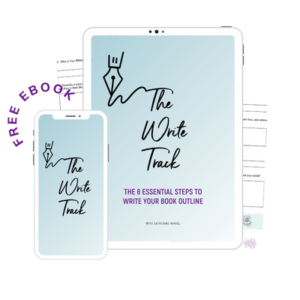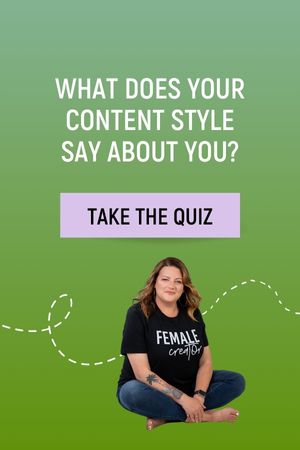Written work can generally be separated into two categories – fiction and nonfiction.
At a very high level, fiction writing delivers stories based on imagination, whereas nonfiction refers to writing that presents factual and informative information.
Both types of writing offer something different to the reader. However, the structure and writing process are very different for each.
Let’s dive in and explore the difference between fiction and nonfiction a little more!
Fiction Writing
What Is Fiction?
Fictional stories are open to the author’s imagination. They can include many characters, a fictional town, descriptive language, and a series of exciting events that bring the reader into the realm of the fictional world.
Nonfiction literature can be about anything (from flying cars to talking mythical creatures). However, not all fiction has to be made up entirely; authors may base their writing based on a true story, embellishing with details, plot and characters where they see fit.
There are several fictional genres, some of which include: fantasy, dystopia, science fiction, historical fiction, mystery, romance, crime fiction, and fairy tales.
Fiction writers aren’t limited to writing fiction books; many TV shows (e.g. Law and Order — which is a favourite of mine) and movies you enjoy (Shawshank Redemption is my all-time favourite) also use fictional writing to tell a story.
Scriptwriting, however, is a whole other topic… For now, let’s cover the differences between fiction and nonfiction.
How to Write Fiction?
Writing a fiction book requires thoroughly developing characters, plot, setting and themes. In addition, fictional stories have a story arc in which character development and a series of inciting events are essential.
One well-known example of fictional plot structure is the hero’s journey which the hero starts in the ordinary world, embarks on a journey filled with ups and downs and returns a more enriched character than they began.
Authors may also choose to write a fictional children’s book, in which case images (and hiring an illustrator) become essential.
Here are a few of my favourite resources on fiction writing:
https://www.nownovel.com/start-writing-a-book
https://blog.reedsy.com/how-to-write-a-novel/
Disclaimer: I have never worked in fiction; unfortunately, my resources and connections are limited in this area. I’m also limited in my consumption of fiction books — James Patterson and Jodi Picoult were ones I read in my twenties; however, I’ve struggled to finish one since.
Why People Read Fiction
Whether you enjoy fantasy or lovey-dovey romance novels, there are so many reasons why people love reading fiction. To name a few fictional writing:
- offers an escape from everyday life
- enhances our sense of imagination and creativity
- provides an opportunity to explore a new setting
- allows us to develop our understanding of empathy and connect to our emotions
…and often fiction books have great morals and lessons to share, so even though the characters, plot and setting are all imagined, the author still has a purpose and audience in mind when writing.
Fiction Examples
Some examples of popular fiction books include:
- The Lord of the Rings series, a set of fantasy novels by J.R.R. Tolkien
- 1984 and Animal Farm, two popular political satire titles by George Orwell
- Gillian Flynn, who wrote Gone Girl
- The Notebook and A Walk to Remember, two well-known romance novels by Nicholas Sparks (both of which were turned into movies allowing his career to take off)
- The Little Prince, a novella by French aristocrat, writer and military pilot Antoine Saint-Exupery
- The Beach House, 1st to Die, Along Came a Spider and Kiss the Girls by James Patterson
The list goes on…
Check out Reese Witherspoon’s book club list for great fiction reads.
She hand-picks a different book each month, and every single one includes a woman as the lead character. How incredible!
Nonfiction Writing
What is Nonfiction?
Nonfiction books and writing is based on fact. It provides the reader with information based on real-life events and collected data.
There are several different genres of nonfiction writing; a few of the most popular include:
Biographies and Memoirs
A retelling of the story of one’s life or particular moments in their life. These books may be authored by the person or written by someone else in memoriam.
e.g., Becoming by Michelle Obama, Angela’s Ashes by Frank McCourt
*This genre is my favourite to write as a ghostwriter and with my book writing coach clients. Stories fascinate me — the ones that happen and the endless ones we tell ourselves. At the time of this post (February 2023), I’ve completed 15 nonfiction books for clients in a ghostwriter capacity, and 8 of those have been biographies.
Motivational/Inspirational
The stories of inspirational people that overcame obstacles to thrive, built a business from nothing or went on epic soul-searching adventures.
e.g., Untamed by Glenn Doyle, Latitude Zero by Mike Horn
These styles are among my favourite to consume — there is something so magical for me in that test-to-testimony writing style.
Business (including Business-Life Lesson Hybrid)
These types of books can be more formal and business-focused with facts and figures or more informal, for example, in the case of entrepreneurs that share how they apply life lessons to their businesses.
e.g., the 7 Habits of Highly Effective People by Stephen Covey and Atomic Habits by James Clear.
This style of book is most common with entrepreneurial clients of mine — they’ve gone through the tough stuff and have used it to propel their businesses in so many ways.
Self-Help BOOKS / Personal Development
Books that provide information to help navigate through a life situation or provide advice for personal growth/advancement
e.g., You are a Badass by Jen Sincero, The Lightbulb Moments Journal that I co-created *shameless plug)
Cookbooks
Recipes are written with a particular audience in mind, such as those who want to make quick meals, start a keto diet or go vegan. Many authors include anecdotes or nutritional information with their recipes today, so it’s about much more than just cooking!
e.g., Cravings by Chrissy Teigen, Eat Feel Fresh by Sahara Rose
Health and Fitness
These books provide information to help improve your health and well-being. They may also include workout routines, nutritional information and information to support meal planning.
e.g., Wheat Belly by Dr. William Davis, Superlife by Darin Olien
Other nonfiction examples include academic writing, travel guides, true crime, reference books (e.g., encyclopedias), history books, art and music references, personal essays, short stories, religion/spirituality, and philosophy.
In addition to being famous written works, many nonfiction titles are eventually turned into documentaries and movies to share the stories with wider audiences.
How to Write Nonfiction
Nonfiction writing is quite different than writing fiction.
Fiction focuses on plot and character development, but nonfiction is about sharing a cohesive story, information, and an action plan for the reader to experience personal growth.
People prefer nonfiction books written in a relatable and authentic way, with a friendly yet strong voice that makes an impact. The content should flow well and inspire readers.
Check out this blog post for more details on what makes a good nonfiction story.
A little note on publishing
Since nonfiction books are about you sharing your story with the world, they lend well to self-publishing. In the past, publishing has been a huge stumbling block for authors who needed to partner with major publishers to get their work out into the world. Today, self-publishing allows small indie authors to get their work out with little hassle.
When it comes to self-publishing, I highly recommend Ingram Spark. They are affordable, offer excellent customer support, free publishing tools and resources and access to their global distribution network, which includes over 40,000+ retailers and libraries.
Note: I am not affiliated with Ingram Spark; I’ve just been around the block and feel it’s my duty to share the best of the best with you! (I also have excellent connections if you are looking for support in this area)
Why People Read Nonfiction books
There are so many reasons why people may purchase and read nonfiction books.
Here are just a few:
- Increase Knowledge – nonfiction books allow the reader to learn at their own pace, whether the information on a specific topic, the history of a person, place or event or “how-to” perform a particular task (e.g., 100M Offers by Alex Hormozi takes you through the basics of creating and executing on an offer people would feel silly saying no to)
- Motivation – there is no better way to be inspired and begin to tap into your self-worth than to look to others who have done exceptional things and want to share their failures and learnings with you (e.g., Matthew McConaughy’s book, Greenlights, he shares a captivating — from the introduction — a story of how he found his way to the big screen and the trials and abundance of tribulations he faced along the way)
- Gain a new perspective – when we explore a topic or experience through the lens of someone else, we can begin to look at life in a new way and may even learn more about ourselves along the way (e.g., navigating through a challenge, reframing our thought patterns. I found incredble persepctive in Michael J. Fox’s book, Lucky Man and his journey after being diagnozed with Parkinson’s)
Ready to Write Your Nonfiction book?
Nonfiction books are a beautiful way to tell your story and make an impact.
You may have had a life-changing experience, are an expert in a particular subject area, or want to share your ideas with the world – it all begins with recognizing the value of what you have to share and then taking action to get your message out there.
Writing a book is no easy feat; you can work with a freelance writer and/or book coach to get you across the finish line if you’re feeling stuck, lack time or direction, or, quite frankly, lack confidence that you can’t do it. I have clients come into my world for various reasons, and I don’t take a second of that privilege for granted.
A book coach can provide you with the one-on-one mentoring and support you need to share your story with the world. They are your cheerleader, proofreader, project manager, emotional support, expert, and more.
A book coach can support you in numerous ways, including brainstorming, organizing ideas, navigating writer’s block, reviewing your work and understanding the publishing process. In addition, a book coach can remove the stress of the book-writing process and let you focus on writing your story.
I put together a complete Guide to Working with a Book Coach where you can learn more.
Final thoughts on fiction and nonfiction…
There are so many people who NEED to hear your story.
I would love to help you share it.
Book a coffee chat and discuss how I can help you become a bestselling nonfiction author!
Use your Voice, Make an Impact.
Catherine x

Email: catherine@catherinenikkel.com
Resources
What type of Content Creator are you? Take the Quiz! – 4 different types of creators, which one are you?
Need help telling your story in your own voice? Let’s make it happen. Schedule a consultation with me here






